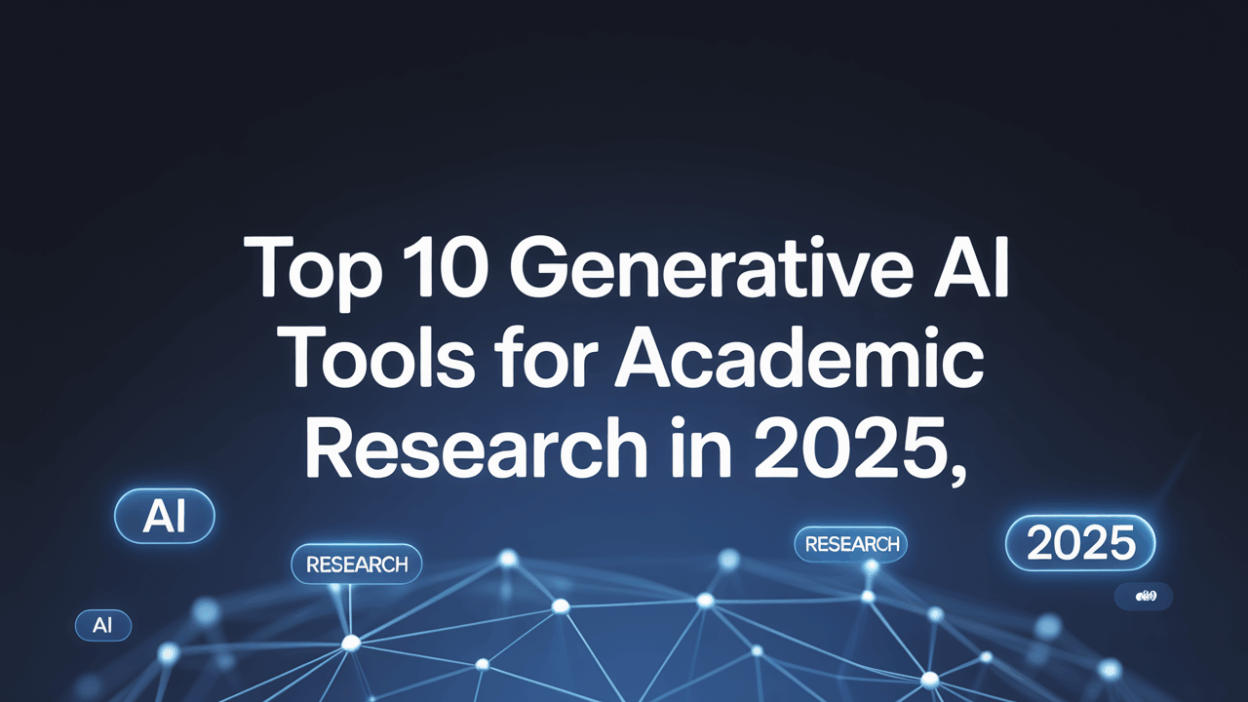In the rapidly evolving landscape of academic research, generative AI tools have become indispensable for scholars and researchers. These tools not only enhance productivity but also improve the quality of research by providing innovative solutions for data analysis, literature review, and content creation. Here, we explore the top 10 generative AI tools that are making waves in the academic community in 2025.
1. Elicit
Elicit stands out as a powerful AI tool designed to streamline the research process. It excels at automating literature reviews and data extraction, allowing researchers to focus on critical thinking and hypothesis generation. With its ability to understand and summarize complex texts, Elicit is a valuable asset for any academic researcher .
2. Scispace
Scispace is another notable AI tool that simplifies the research workflow. It offers features such as real-time collaboration, citation management, and grammar checking, making it easier for researchers to write and publish their work. Scispace’s intuitive interface and robust functionality have made it a favorite among academics .
3. Consensus
Consensus is an AI-driven platform that helps researchers identify trends and patterns in large datasets. By leveraging machine learning algorithms, Consensus provides insights that can inform research directions and validate findings. Its user-friendly design ensures that even those with limited technical expertise can benefit from its capabilities .
4. Research Rabbit
Research Rabbit is an excellent tool for managing citations and conducting literature reviews. It offers visual maps of research topics, helping users to discover connections between different studies and identify gaps in the existing literature. This tool is particularly useful for researchers who need to stay updated with the latest developments in their field .
5. Grammarly
While Grammarly is well-known for its grammar-checking capabilities, its role in academic writing should not be overlooked. The tool provides suggestions for clarity, tone, and style, ensuring that research papers are not only free of errors but also well-written and engaging. Grammarly’s plagiarism detection feature is an added bonus for maintaining academic integrity .
6. Trinka AI
Trinka AI is specifically designed for academic and scientific writing. It offers advanced grammar checks, language polishing, and even checks for logical consistency in arguments. Trinka AI’s specialized focus makes it an ideal choice for researchers looking to enhance the quality of their manuscripts before submission .
7. Hemingway Editor
The Hemingway Editor is a straightforward tool that helps writers produce clear and concise content. By highlighting complex sentences and suggesting simpler alternatives, it ensures that research papers are accessible to a broader audience. This tool is particularly beneficial for researchers aiming to communicate their findings effectively .
8. QuillBot
QuillBot is a versatile paraphrasing tool that aids in rewriting and summarizing content. Its ability to maintain the original meaning while altering sentence structure makes it invaluable for avoiding plagiarism and enhancing readability. Researchers can use QuillBot to refine their drafts and ensure their work is both original and impactful .
9. ProWritingAid
ProWritingAid offers comprehensive writing assistance, including grammar checks, style suggestions, and readability analysis. Its integration with various word processors allows for seamless editing, making it easier for researchers to polish their work. ProWritingAid’s detailed reports provide actionable insights that can significantly improve the quality of academic writing .
10. Jasper
Jasper is a powerful AI writing assistant that supports content creation across various formats, including research papers, blog posts, and marketing copy. Its ability to generate high-quality content quickly makes it an efficient tool for researchers who need to disseminate their findings to diverse audiences. Jasper’s versatility and ease of use make it a standout choice for academic applications .
Conclusion
As we navigate through 2025, these generative AI tools are revolutionizing the way academic research is conducted. From streamlining literature reviews to enhancing writing quality, each tool brings unique benefits that empower researchers to achieve their goals more efficiently. Embracing these technologies can lead to more impactful research and a more streamlined academic experience.
